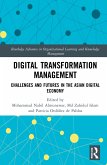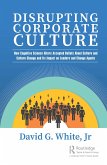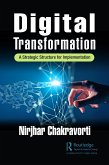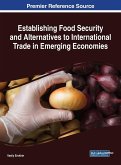Delivering Distinctive Value in Emerging Economies
Efficient and Sustainably Responsible Perspectives from Management Researchers and Practitioners
Herausgegeben:Anning-Dorson, Thomas; Boateng, Sheena Lovia; Boateng, Richard
Delivering Distinctive Value in Emerging Economies
Efficient and Sustainably Responsible Perspectives from Management Researchers and Practitioners
Herausgegeben:Anning-Dorson, Thomas; Boateng, Sheena Lovia; Boateng, Richard
- Broschiertes Buch
- Merkliste
- Auf die Merkliste
- Bewerten Bewerten
- Teilen
- Produkt teilen
- Produkterinnerung
- Produkterinnerung
The idea behind editing this book is to present a contemporary reference that tells the story of how businesses and institutions in emerging economies are circumventing or can better circumvent institutional voids in order to create distinct value for consumers and develop resilient and sustainable economies. For this book, we gathered 24 contributions (or chapters) on new directions and strategies to create value in emerging economies. The contributions span thematic areas such as: COVID-19 and small businesses, social influencers and COVID-19 advocacy, artisan entrepreneurship, leadership…mehr
Andere Kunden interessierten sich auch für
![Digital Transformation Management Digital Transformation Management]() Digital Transformation Management126,99 €
Digital Transformation Management126,99 €![Disrupting Corporate Culture Disrupting Corporate Culture]() White, Jr, David G.Disrupting Corporate Culture31,99 €
White, Jr, David G.Disrupting Corporate Culture31,99 €![Cross-cultural Challenges in International Management Cross-cultural Challenges in International Management]() Cross-cultural Challenges in International Management38,99 €
Cross-cultural Challenges in International Management38,99 €![Digital Transformation Digital Transformation]() Nirjhar ChakravortiDigital Transformation25,99 €
Nirjhar ChakravortiDigital Transformation25,99 €![Citizenship, Democracies, and Media Engagement among Emerging Economies and Marginalized Communities Citizenship, Democracies, and Media Engagement among Emerging Economies and Marginalized Communities]() Citizenship, Democracies, and Media Engagement among Emerging Economies and Marginalized Communities90,99 €
Citizenship, Democracies, and Media Engagement among Emerging Economies and Marginalized Communities90,99 €![Establishing Food Security and Alternatives to International Trade in Emerging Economies Establishing Food Security and Alternatives to International Trade in Emerging Economies]() Establishing Food Security and Alternatives to International Trade in Emerging Economies223,99 €
Establishing Food Security and Alternatives to International Trade in Emerging Economies223,99 €![Grounded Theory Grounded Theory]() Christina GouldingGrounded Theory176,99 €
Christina GouldingGrounded Theory176,99 €-
-
-
The idea behind editing this book is to present a contemporary reference that tells the story of how businesses and institutions in emerging economies are circumventing or can better circumvent institutional voids in order to create distinct value for consumers and develop resilient and sustainable economies. For this book, we gathered 24 contributions (or chapters) on new directions and strategies to create value in emerging economies. The contributions span thematic areas such as: COVID-19 and small businesses, social influencers and COVID-19 advocacy, artisan entrepreneurship, leadership and project success, internationalization and intellectual property, cultural artifacts in corporate branding, fintech adoption, mobile money and agriculture value chain, workplace fraud, ethical decision-making in accountancy, modeling early detection of mother's mode of delivery, assessment of health systems in Africa, online platforms and patient empowerment, students' academic engagement and technology, and continuous use of e-learning among professional accounting students. The authors of these contributions discuss the relevance of each chapter to its target audience (practitioners and students). They also outline the implications for practice and policy (where applicable) alongside the concluding arguments of their respective chapters. In effect, the 24 chapters offer key strategic directions for businesses, public sector institutions, non-governmental organizations, and international development institutions to be more efficient and sustainably responsible in delivering distinctive value in emerging economies.
Emerging economies have become an opportune interest of practitioners, entrepreneurs and policy makers worldwide. Hence, a contemporary text which explores how to create and deliver distinct value in these economies is a must a read.
Emerging economies have become an opportune interest of practitioners, entrepreneurs and policy makers worldwide. Hence, a contemporary text which explores how to create and deliver distinct value in these economies is a must a read.
Produktdetails
- Produktdetails
- Verlag: Productivity Press / Taylor & Francis
- Seitenzahl: 420
- Erscheinungstermin: 23. Juni 2022
- Englisch
- Abmessung: 254mm x 178mm x 23mm
- Gewicht: 453g
- ISBN-13: 9780367714734
- ISBN-10: 0367714736
- Artikelnr.: 62575082
- Herstellerkennzeichnung
- Libri GmbH
- Europaallee 1
- 36244 Bad Hersfeld
- gpsr@libri.de
- Verlag: Productivity Press / Taylor & Francis
- Seitenzahl: 420
- Erscheinungstermin: 23. Juni 2022
- Englisch
- Abmessung: 254mm x 178mm x 23mm
- Gewicht: 453g
- ISBN-13: 9780367714734
- ISBN-10: 0367714736
- Artikelnr.: 62575082
- Herstellerkennzeichnung
- Libri GmbH
- Europaallee 1
- 36244 Bad Hersfeld
- gpsr@libri.de
Prof. Richard Boateng Richard Boateng is an associate professor in Information Systems at the University of Ghana Business School. He is a technology researcher who focuses on developing, communicating, protecting, promoting ideas and concepts into sustainable projects of commercial value and development impact. He serves as the Head of the Department of Operations and Management Information Systems at the Business School of the University of Ghana. He is also the associate editor of the Information Technologies & International Development Journal and serves on the editorial board of the Information Development Journal. He is also a member of the Association of Information Systems. His research experience covers the digital economy, cloud computing, e-learning, information and communication technologies (ICT) for development, electronic governance, social media, electronic business, gender and technology, mobile commerce, and mobile health at the national, industrial, organisational and community levels. Since 2006, Richard has published 44 refereed journal articles, six books, seven book chapters, 38 published conference paper proceedings, one international technical report, and two journal editorials. His Scopus report features 65 publications spanning journal articles, a book, book chapters and conference paper proceedings. Since joining the University of Ghana in 2010, he has collaborated with other faculty to obtain not less than 2 million USD in research and project funds. These research and project funds have been obtained from organisations including GIZ (German Development Agency, Ghana), World Wide Web Foundation (USA), Vodafone Group (Global/UK), Danish International Development Agency (DANIDA), International Development Research Centre (Canada), and the World Bank. He has also consulted for the United Nations Development Programme (UNDP), Ghana, and United Nations Educational, Scientific and Cultural Organisation (UNESCO) Accra Cluster Office on technology and communication development projects. Richard holds a doctorate in Development Informatics and a master's degree in Management and Information Systems from the University of Manchester, UK. He is a British Chevening Award Scholar and a Dorothy Hodgkin Postgraduate Award Scholar. After his PhD, he undertook a post-doctoral programme at the International Centre for IT and Development, Southern University and A&M College, USA under the sponsorship of the National Science Foundation, USA. In May 2010, Richard received a Best Paper Award for a lead-authored paper published in the Journal of African Business "E-Commerce in the least Developing Countries: Summary Evidence and Implications." On 26th March 2011, Richard received the Southern University (USA) Research Leadership Award, for his contribution to ICT Research in Africa, awarded at the 4th International Conference on ICT for Africa, held at Covenant University, Ota, Nigeria. On two occasions, Richard has been invited to contribute to global reports on information systems access and usage. First, by the Renowned Economist, Diane Coyle for the Vodafone Global PLC.'s Socio-economic Impact of Mobiles (SIM) Report; and second, by the World Wide Web Foundation for the 2019 Women's Rights Online Survey. Richard has been listed among the Top twenty Highly cited Scholars in University of Ghana by Google Scholar: https://tinyurl.com/y89o59se Dr. Sheena Lovia Boateng Sheena Lovia Boateng is a lecturer at the Department of Marketing and Entrepreneurship at the University of Ghana Business School. She is the first female to complete a PhD in Marketing from the University of Ghana and is also the founder of the Women in Tertiary Education (WITE) Network, which seeks to provide support for women pursuing tertiary education in their academic research, family life and career balance. She is a fellow of the Academy of Marketing Science. She is also a member of the Editorial Advisory Board for the Emerald Emerging Markets Case Study Journal, Emerald Publishing Limited, UK. She has six refereed journal publications, three books, four book chapters, five published conference papers, one working paper, and one industry report. Her academic work has been published in the International Journal of Bank Marketing, Journal of Financial Services Marketing, Smart Learning Environments and the Journal of Educational Technology Systems. Her research interests include online relationship marketing, fashion and beauty marketing, digital business strategy, electronic learning adoption, entrepreneurship, online branding and advertising, social media marketing and structural equational modelling in marketing. Dr. Sheena's paper on signalling theory published in the International Journal of Bank Marketing (2019) was listed among the most popular papers in the journal for the first quarter of 2019. She has completed the supervision of two doctoral research students who graduated in December 2019. Since beginning her doctoral career, she has collaborated with other faculty from different universities to obtain not less than the US $200,000 in research and project funds. These research and project funds have been obtained from organisations including Danish International Development Agency (DANIDA), World Bank and the United States International Development Agency (USAID) and the African Development Bank (AFDB). Dr. Thomas Anning-Dorson Thomas Anning-Dorson is a Senior Lecturer at Wits Business School, University of the Witwatersrand, Johannesburg, South Africa and a Research Associate at the School of Consumer Intelligence and Information Systems, University of Johannesburg. Thomas is a Research Fellow at McGill University, Montreal, Canada through the Queen Elizabeth Scholars Program. Thomas is a member of the American Marketing Association, fellow at the Academy of Marketing Science and Academy of International Business. He serves as the Track Chair - (International Business Theory) for the Academy of International Business - Sub-Saharan Africa Chapter (AIB Africa). Thomas is an enthusiastic scholar and management consultant with a keen interest in the issues of Innovation, Strategy, Digitalization, Enterprise Growth, and Marketing in Emerging Markets. Dr. Thomas' current research focuses on Competitive Strategy, Brands, Innovation, Services Management, Emerging Markets, Customer Experience Management, 4IR and Enterprise Development. His research has been published in top tier international journals including Journal of Business Research, International Marketing Review, Computer in Human Behavior, International Journal of Contemporary Hospitality Management, Cross-Cultural and Strategic Management, Marketing Intelligence and Planning, European Journal of Innovation Management, and International Journal of Bank Marketing.
PART I - Beyond COVID-19 1. Embracing the New Normal: Guidelines for Small Businesses in Emerging Economies 2. Vaccinating the World: Social Influencers and COVID-19 Advocacy 3. Applying Agile Principles in Institutions of Higher Learning: Lessons from the COVID-19 Pandemic PART II - Doing Business in Emerging Economies: Reflections and Future Directions 4. Emerging Trends in Digital Transformation in the Public Sector for Service Innovation 5. Old Roots into New Trees: Artisan Entrepreneurship in Cyprus 6. The Missing Links for Project Success: Evidence from an Emerging Economy 7. When Internationalization Goes Awry: The Separation of Policy and Practice in Intellectual Property PART III - Managing the Consumer Expectations and Behavior 8. Leveraging Cultural Artifacts in Corporate Branding in a Developing Economy 9. Assessing the Mobile Money Value Creation in the Agriculture Value Chain: Evidence from a Developing Economy 10. Examining Fintech Adoption in the Banking Sector of a Developing Country Part IV - Developing Resilient Economies and Institutions 11. A Scientific Decision-Making Framework to Aid the Selection of Leadership Styles for Project Success 12. What Factors Drive Ethical Decision-Making of Prospective Accountants? 13. The Motivation to Engage in Fraud by Individuals at the Workplace 14. Developing a Nexus Managerial Resilience using Spiritual Intelligence: An Investigation towards Malaysia's Transformation into Industry 4.0 15. From Cradle to Maturity: How Digital Enterprises in Developing Economies Strategize to Survive PART V - Innovation and Healthcare 16. "Get Checked. Go Collect" - Improving Patients' Access to Chronic Medication 17. Predictive Model for Early Detection of Mother's Mode of Delivery with Feature Selection 18. Decomposing Performance Assessment of Health Systems Towards Greater Resilience and Sustainability in Africa 19. Rethinking Patient Empowerment through Online Patient Portals for Managing Diabetes and Hypertension in Ghana 20. Innovation and Healthcare in the Next Decade PART VI - Making Higher Education More Responsive 21. Deploying a Computer-based Registration System in Developing Economy: Lessons Learned 22. Towards Improving Students' Academic Engagement: The Role of Educational Technology 23. Towards Building Organizational Resilience to Social Engineering among Higher Educational Institution Professionals 24. Professional Accounting Students' Intention to Continuously Use E-Learning in COVID-19 Era
PART I - Beyond COVID-19 1. Embracing the New Normal: Guidelines for Small Businesses in Emerging Economies 2. Vaccinating the World: Social Influencers and COVID-19 Advocacy 3. Applying Agile Principles in Institutions of Higher Learning: Lessons from the COVID-19 Pandemic PART II - Doing Business in Emerging Economies: Reflections and Future Directions 4. Emerging Trends in Digital Transformation in the Public Sector for Service Innovation 5. Old Roots into New Trees: Artisan Entrepreneurship in Cyprus 6. The Missing Links for Project Success: Evidence from an Emerging Economy 7. When Internationalization Goes Awry: The Separation of Policy and Practice in Intellectual Property PART III - Managing the Consumer Expectations and Behavior 8. Leveraging Cultural Artifacts in Corporate Branding in a Developing Economy 9. Assessing the Mobile Money Value Creation in the Agriculture Value Chain: Evidence from a Developing Economy 10. Examining Fintech Adoption in the Banking Sector of a Developing Country Part IV - Developing Resilient Economies and Institutions 11. A Scientific Decision-Making Framework to Aid the Selection of Leadership Styles for Project Success 12. What Factors Drive Ethical Decision-Making of Prospective Accountants? 13. The Motivation to Engage in Fraud by Individuals at the Workplace 14. Developing a Nexus Managerial Resilience using Spiritual Intelligence: An Investigation towards Malaysia's Transformation into Industry 4.0 15. From Cradle to Maturity: How Digital Enterprises in Developing Economies Strategize to Survive PART V - Innovation and Healthcare 16. "Get Checked. Go Collect" - Improving Patients' Access to Chronic Medication 17. Predictive Model for Early Detection of Mother's Mode of Delivery with Feature Selection 18. Decomposing Performance Assessment of Health Systems Towards Greater Resilience and Sustainability in Africa 19. Rethinking Patient Empowerment through Online Patient Portals for Managing Diabetes and Hypertension in Ghana 20. Innovation and Healthcare in the Next Decade PART VI - Making Higher Education More Responsive 21. Deploying a Computer-based Registration System in Developing Economy: Lessons Learned 22. Towards Improving Students' Academic Engagement: The Role of Educational Technology 23. Towards Building Organizational Resilience to Social Engineering among Higher Educational Institution Professionals 24. Professional Accounting Students' Intention to Continuously Use E-Learning in COVID-19 Era








